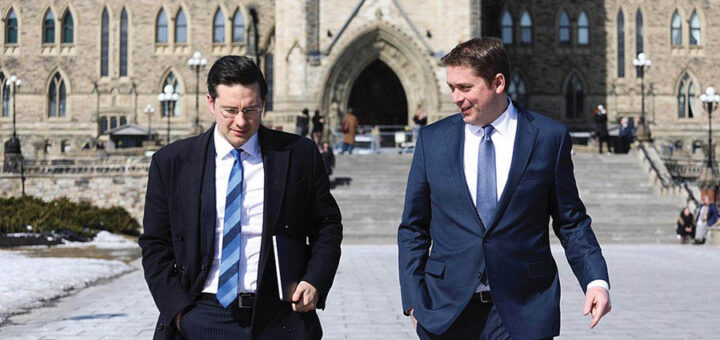What Pierre Poilievre’s leadership could mean for Canada

Jed Mabazza, Web Editor
Long time Ontario Member of Parliament Pierre Poilievre clinched the top job as the new leader of the federal Conservative Party of Canada on Saturday, Sept. 10.
According to CBC News, Poilievre secured 68.15 per cent of the vote on the first ballot, swiftly ending a divisive seven-month leadership race. CBC News confirms that the former cabinet minister won 300 of the 338 electoral districts in Canada, far outmatching his Progressive Conservative rival and former Quebec Premier John Charest who, by comparison, only won eight.
Ever since Poilievre entered his name into the ballot, he was strongly considered the presumptive front runner to lead the party into the next general election. However, that did not prevent some heated moments between Poilievre and Charest. According to the same article, “Poilievre accused Charest of being a closet Liberal, while Charest slammed his opponent in turn as a radical who has sought the support of criminals associated with the Freedom Convoy.”
Listed below are Poilievre’s policies.
Fiscal Policy
Regarding government expenditures, Poilievre’s campaign website states that he will adopt a ‘pay as you go’ model, which aims to prevent federal spending from exceeding its set budget. Poilievre’s campaign confirms that the proposed legislation will require that with each dollar of a new spending project, cuts in spending to current projects would have to be made.
Energy
According to Poilievre’s campaign website, if the conservatives form the next government, he has vowed to repeal the carbon tax. As an alternative, Poilievre plans on utilizing innovative technology to manage the country’s greenhouse gas emissions. Poilievre’s campaign also cites that he has openly supported building more pipeline projects “to move Canadian Oil from West to East.”
Social Policy
In his first speech as leader of the federal Conservatives, Poilievre stated that “I am a Canadian, a free Canadian…This heritage of freedom I pledge to uphold for myself and all of mankind.” One of the ways in which Poilievre wants to uphold his vision of freedom is by encouraging the use of free speech in post-secondary institutions. A Poilievre-led government would refuse federal funding to any post secondary institution who does not commit to the proposed policy. As well, Poilevre’s campaign commits to repealing Bill C-11, also known as the Online Streaming Act.
Government Jargon
Poilievre’s campaign confirms that he wants to change the way government jargon is communicated in the House of Commons as well as on legislation, proposed as the ‘Plain Language Law’. Poilievre’s campaign has yet to explain in further detail on how the law might be implemented.
Housing
Poilievre’s campaign website highlights that he would apply pressure to build more houses in the cities where the housing market is the highest, namely in Toronto and Vancouver. His plan to lower housing prices, as per his campaign platform, is for the two Canadian cities to “increase new home building by 15 per cent.” Poilievre’s campaign also adds the idea of providing municipalities a “$10,000 [grant] per home on all growth in their home building, paid out only after the units are built and occupied.”
Although Poilievre won a landslide victory in the first ballot, indicative of widespread party support, reaction to the leadership win in his hometown of Calgary has been mixed. According to CTV News, Bob Lowtin, a Calgary resident says “I think he’s somewhat sensitive to what’s happened in Alberta and the prairies in general, and I think that there’s a very good chance that he could benefit us.”
On the other hand CTV News relates a different reaction from Mount Royal University political scientist, Keith Brownsey who says “He was a convoy supporter. He was out there with the convoy in downtown Ottawa, praising them and giving them his support. Now, is that what people want in a prime minister? I don’t think so.”
The next general election won’t be until 2025 as part of the Trudeau Liberal’s Supply and Confidence Agreement with Jagmeet Singh’s New Democratic Party. In the meantime, Pierre Poilievre will have to take on the mantle of his two predecessors (Andrew Scheer & Erin O’Toole), keeping the party united for years to come.





